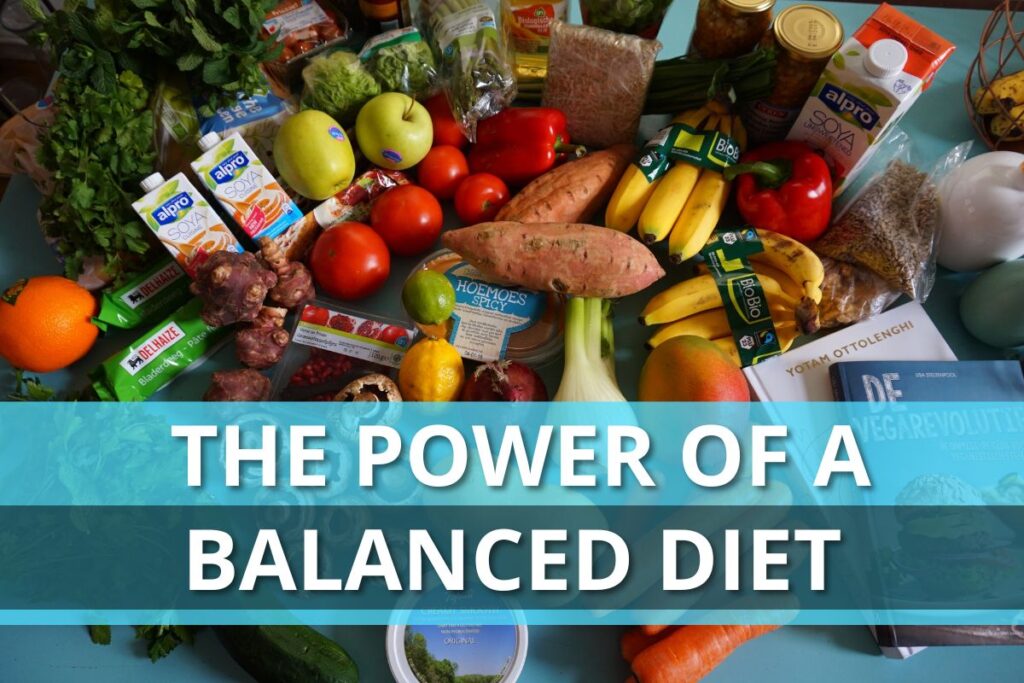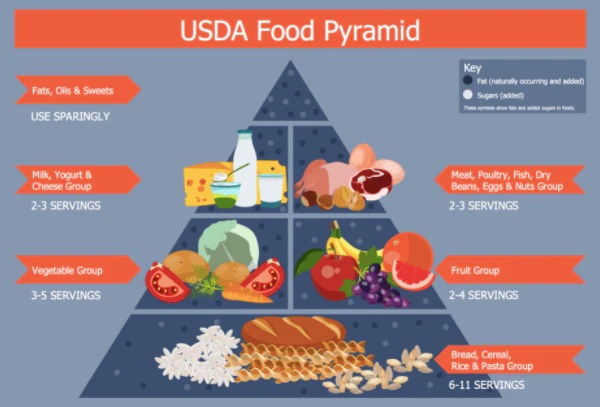The power of a balanced diet
Author:
Unlock your full potential by engaging with our experts and community! Have questions about your fitness journey or looking for expert advice on weightlifting techniques? Don’t hesitate — leave a comment below and Sergii Putsov will provide a personalized answer and insights to help you reach your goals.
Torokhtiy is reader-supported. Some links are affiliate links, and we may earn a commission at no extra cost to you. See our disclosure page for details.

We’ve been focusing so much on improving our technique, performing even more intense training programs and becoming stronger and this is really important. We’ve been training for years and decades, but we don’t do justice to our recovery or nutrition. It’s very in vain.
When the results of weightlifting hit their limits, it can be difficult to understand why. While strength indicators refuse to grow and muscle mass stands still-you might ask yourself: “After all this time training what is wrong?”.
Top level athletes have told me time and again that when they turned to a nutritionist, their diets became much more stable. And this is not surprising because as soon as the chaotic diet becomes balanced with all nutrients accounted for in every meal—it has an amazing effect on several indicators at once:
- We feel better – every day;
- Our energy levels are higher during workouts: performance and strength endurance improve on hard training days;
- We feel better between heavy sets;
- We recover faster after tough sessions;
- We look more athletic.
What Is A Balanced Nutrition?
Have you ever seen the USDA food pyramid? See what it looks like and what product groups it includes.
You may like it:

Expert organizations, including the USDA, recommend that your daily diet include:
- Cereals and starches: cereals, bread, pasta.
- Vegetables.
- Fruits and berries.
- Protein products: poultry meat, rabbit; red meat (veal, beef, pork); fish (including fatty, 1-2 servings per week) and seafood; eggs; legumes (lentils, chickpeas, beans, beans, tofu); nuts and seeds.
- Dairy products: milk, cheese, yogurt, kefir, cottage cheese.
Each group has its own set of nutrients – vitamins, minerals, fiber and others that are either not produced by the human body or are produced in insufficient quantities:
- Cereals contain B vitamins (except B12), magnesium, zinc, iron, phosphorus, as well as fiber and phytochemicals;
- Fruits and berries: each contains vitamins A, C & B-12 as well as other nutrients such minerals like potassium, magnesium, fiber, phytochemicals (including antioxidants);
- Vegetables: They’re packed with vitamins and minerals like K, A, C & group B (except for B12), as well potassium, magnesium, calcium, iron, fiber, phytochemicals including antioxidants;
- Protein group: vitamins A, K, E, B vitamins, iron, zinc, magnesium, calcium, phosphorus, selenium, iodine, manganese, copper + vitamin D and 2 classes of the most important omega-3 acids. Sources of vitamin D and omega-3 are fatty fish (herring, mackerel, as well as trout and other members from the salmon family).
- Dairy: are an excellent source of B vitamins, calcium and zinc. They also provide you with phosphorus, selenium, and iodine.
By eating a variety of foods, without excluding any food group we can get the whole set nutrients.
Weightlifters have higher calorie needs than the average person. Therefore, following a balanced diet, we automatically get more essential nutrients: amino acids and fatty acids, as well as vitamins, minerals and other substances.
If we eat a well-balanced and varied diet, then supplements are not necessary! But in order to fully understand them and know when they might be helpful for us – you should read about it here first!
How A Balanced Diet Looks On The Plate
To transfer the food pyramid to your plate, you can follow these rules::
- At each main meal eat an abundance of grains and proteins with vegetables or fruit;
- Eat a dairy product in 2-3 meals;
- Have 1 to 2 snacks with fruit, nuts or peanut butter that will keep you feeling energized all day long!
The body is the most complex machine in our world, and it needs proper nutrition to operate at its best. A balanced diet can take you from average performance all the way up into elite athletic levels. And if you need to lose or gain weight in order to enter the weight category, it will be very difficult to do without well-planned nutrition.
Old ways like dehydration can actually reduce physical ability and even increase the risk of injury – there are better methods out here!
If you need help with your diet and want a system that will work for your weight category, then we have the perfect solution: Maximum Performance Nutrition!

It comes with an easy-to-follow visual diet plan, meal ideas tailored just for training times and even recommendations on how much or little food to eat while gaining/losing body fat percentage points at any given moment in time. The needs of weightlifters are taken into account in our Maximum Performance Nutrition program design!
Related articles:
- Glutamine: An Effective Supplement Or Just Waste Of Money?
- Nutrition For Joints And Ligaments
- Meal Plan For Weightlifter
- Sports Drinks And Weightlifting
You might be interested in:
Why Trust Us?
With over 20 years in Olympic weightlifting, strength training, nutrition coaching, and general fitness our team does its best to provide the audience with ultimate support and meet the needs and requirements of advanced athletes and professional lifters, as well as people who strive to open new opportunities and develop their physical capabilities with us.
By trusting the recommendations of our certified experts in coaching, nutrition, and sports training programming, as well as scientific consultants, and physiotherapists, we provide you with thorough, well-considered, and scientifically proven content. All the information given in the articles concerning workout programming, separate exercises, and athletic performance, in general, is based on verified data.
The product testing process is described in more detail here.
Author: Sergii Putsov
Head of Sport Science, PhD
Best Results: Snatch – 165 kg,
C&J – 200 kg
Sergii Putsov, Ph.D., is a former professional weightlifter and National team member, achieving multiple medals in the 94 kg weight category at national competitions. With a Master’s degree in “Olympic & Professional Sport Training” and a Sport Science Ph.D. from the International Olympic Academy, Greece, Sergii now leads as the Head of Sport Science. He specializes in designing training programs, writing insightful blog articles, providing live commentary at international weightlifting events, and conducting educational seminars worldwide alongside Olympic weightlifting expert Oleksiy Torokhtiy.




Still have questions after reading our article? Unlock your full potential by engaging with our experts and community! Don’t hesitate — leave a comment below and Sergii Putsov will provide a personalized answer and insights to help you reach your goals.